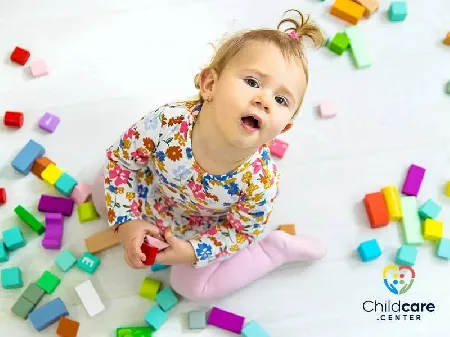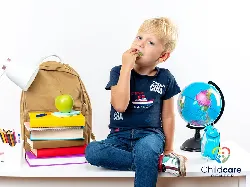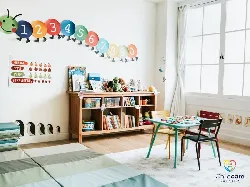Independence in Toddlers: How to Encourage It Without the Tantrums

Embarking on the journey of nurturing independence in toddlers is a pivotal chapter in the parenting story. This developmental milestone is not just about toddlers learning to do things on their own; it's a foundational step towards building self-confidence, problem-solving skills, and resilience. As parents, the challenge lies in providing the right mix of support and freedom, allowing toddlers to explore their capabilities while ensuring they feel secure and loved. This delicate balance is crucial for fostering a sense of autonomy in toddlers, empowering them to navigate the world with confidence and curiosity.
Understanding Independence in Toddlers
The quest for independence in toddlers is a natural part of their growth, reflecting their desire to explore, make choices, and assert their individuality. This journey towards autonomy is both exciting and daunting, as toddlers begin to push boundaries and express their will.
The Importance of Fostering Independence
Fostering independence in toddlers is vital for their emotional and cognitive development. It encourages them to develop a sense of self-efficacy, teaching them that their actions have power and that they are capable of overcoming challenges. This empowerment helps build resilience, a trait that will benefit them throughout their lives. By supporting their independence, parents lay the groundwork for children who are confident, capable, and ready to tackle the world.

Recognizing the Signs of Growing Independence
The signs of growing independence in toddlers can manifest in various ways, from choosing what to wear to wanting to feed themselves. These actions, while seemingly small, are significant indicators of their emerging autonomy. Paying attention to these signs is crucial for parents, as it allows them to provide the right support at the right time, encouraging their toddlers' growth in a positive direction.
Strategies to Encourage Independence
Encouraging independence in toddlers requires intentional strategies that respect their growing need for autonomy while ensuring their safety and well-being.
Providing Opportunities for Self-Service
One of the most effective ways to foster independence is through self-service opportunities. Encouraging toddlers to engage in simple tasks like self-feeding, dressing, and undressing not only promotes their motor skills but also boosts their confidence. These activities allow them to experience the satisfaction of doing things on their own, reinforcing their sense of autonomy.
- Self-feeding: Introducing utensils that are easy to handle and offering foods that encourage self-feeding can make mealtime an opportunity for independence.
- Dressing and undressing: Choosing clothes with simple fasteners and encouraging toddlers to dress themselves can foster a sense of achievement.
Allowing Choice and Control
Giving toddlers controlled choices and involving them in decision-making processes empowers them and enhances their problem-solving skills.

This approach teaches them the value of making decisions and helps them understand the consequences of their choices.
- Offering controlled choices: Whether it's selecting a snack or choosing a book to read, giving toddlers options within a safe framework encourages independent thinking.
- Involving toddlers in decision-making: Including toddlers in simple family decisions, like picking a movie for movie night, fosters a sense of belonging and importance.
Setting the Stage for Success
Creating an environment that nurtures independence in toddlers is about more than just physical space; it's about crafting a supportive framework that encourages autonomy.
Creating a Toddler-Friendly Environment
Designing a space that is safe and accessible for toddlers encourages them to explore and learn independently. This involves:
- Arranging accessible storage: Keeping toys and materials on low shelves where toddlers can reach them encourages self-initiated play and learning.
- Safe spaces for exploration: Ensuring the environment is safe for exploration lets toddlers satisfy their curiosity without constant intervention.
Establishing Routines
Routines play a crucial role in fostering independence by providing a predictable structure that helps toddlers feel secure. This predictability allows them to navigate their day with confidence, knowing what comes next.
- Importance of predictable schedules: A consistent routine helps toddlers understand the flow of their day, from meal times to bedtimes.
- Routine as a framework for independence: Within the security of a routine, toddlers can exercise independence in tasks like choosing their pajamas or helping to set the table.
Practical Tips for Parents
Navigating the path to independence in toddlers is filled with opportunities for teaching and growth. Here are some practical tips for parents to support their toddlers' journey towards autonomy.
Encouraging Problem-Solving and Risk-Taking
Encouraging toddlers to take reasonable risks and solve problems on their own fosters critical thinking and resilience. For practical daily activities that support this, consider Little Things for Independence, which delves into how simple tasks can significantly enhance a child's autonomy. This involves:
- Allowing reasonable risks: Letting toddlers attempt slightly challenging tasks, like climbing on a playground structure, encourages them to assess and take risks.
- Guiding through problem-solving: Instead of immediately solving a problem for them, guide toddlers with questions that help them think through solutions.
Involvement in Household Tasks
Involving toddlers in household tasks not only teaches responsibility but also reinforces their sense of capability and belonging. This can include:
- Age-appropriate chores: Simple tasks, such as putting toys away or helping to water plants, are age-appropriate chores that can make toddlers feel like valued contributors to the family. These activities encourage a sense of responsibility and belonging, fostering independence in your child.
- The role of play in learning: Integrating play into learning and chores makes these activities more engaging and reinforces learning through experience.
For more insights on toddler health, development, and safety, the Canadian Paediatric Society - Caring for Kids provides parents with valuable information from Canada's pediatricians.
Navigating Challenges
The journey towards independence in toddlers is not without its challenges. Understanding and navigating these obstacles is key to fostering a nurturing environment.
Dealing with Tantrums and Power Struggles
Tantrums and power struggles are often expressions of frustration or a desire for autonomy. Handling these moments with empathy and consistency is crucial.
- Understanding the root causes: Recognizing that tantrums often stem from a toddler's frustration or feeling of powerlessness can help parents respond more empathetically.
- Strategies for prevention and management: Establishing clear boundaries, offering choices, and using distraction can be effective strategies for managing tantrums.
Aggressive behavior in toddlers, such as tantrums and power struggles, often stems from frustration or a desire for autonomy. Handling these moments with empathy and consistency is crucial. Exploring additional strategies and insights can be helpful in managing these challenges.
Balancing Guidance and Independence
Finding the right balance between guiding toddlers and allowing them the freedom to explore is crucial for fostering independence.
- Knowing when to step in and when to step back: Observing and understanding a toddler's cues can help parents decide when to offer help and when to let them figure things out on their own.
- Encouraging without hovering: Providing encouragement from a distance allows toddlers to feel supported while exploring their independence.
Celebrating Milestones and Progress
Recognizing and celebrating each milestone in a toddler's journey towards independence is crucial for reinforcing their achievements and motivating them to embrace new challenges.
Recognizing and Celebrating Achievements
Acknowledging accomplishments, no matter how small, boosts a toddler's confidence and underscores the importance of their efforts towards independence.
- The importance of positive reinforcement: Positive reinforcement, through praise or small rewards, encourages toddlers to continue exploring and learning independently.
- Sharing joy in milestones: Celebrating milestones together strengthens the bond between parents and toddlers, reinforcing the joy in their achievements.

Resources and Further Reading
For parents seeking additional guidance and support, a wealth of resources is available to navigate the journey of fostering independence in toddlers.
Books and Online Resources for Parents
A curated selection of books and online resources can offer valuable insights and strategies for encouraging toddler independence, providing parents with tools and knowledge to support their child's development.
Community Support and Parenting Groups
Engaging with community support and parenting groups offers the opportunity to share experiences, advice, and encouragement with others on a similar journey, fostering a sense of community and shared learning.
Fostering independence in toddlers is a journey filled with discovery, challenges, and immense rewards. By understanding the importance of this developmental stage, employing strategies to encourage autonomy, and navigating the challenges with empathy and patience, parents can significantly contribute to their child's growth into a confident and self-reliant individual. Celebrating each step of this journey not only reinforces the child's achievements but also strengthens the bond between parent and child, creating a foundation of trust and mutual respect that lasts a lifetime.
Conclusion
In wrapping up, the journey to cultivate independence in toddlers is both rewarding and challenging, filled with moments that test patience and inspire pride. It's a delicate dance of providing support and stepping back to allow autonomy, a process that lays the foundation for a child's future resilience, confidence, and self-reliance. Celebrating each small victory and navigating the hurdles with understanding and empathy enriches the parenting experience, forging a deep bond and mutual respect between parent and child. As we guide our toddlers through this critical phase, we're not just teaching them to be independent; we're setting the stage for a lifetime of curiosity, learning, and personal growth.










